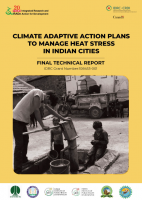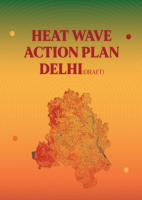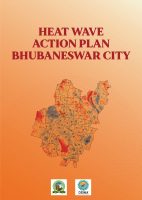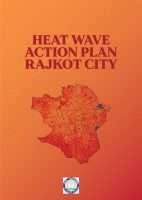Final Technical Report
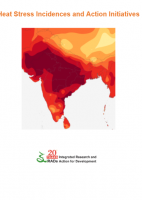
Heat Stress Compendium – Heat Wave Incidences and Action Initiatives
2021
Heat Stress Compendium on Heat Wave Incidences and Action Initiatives
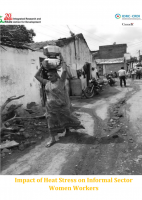
2020
The study takes into account the health conditions, economic factors, and living conditions of women and how the heat impacts them. It will help in understanding the link between climate change and gender and how it affects everyone differently owing to the vulnerabilities and inequalities existing in society. It also enabled the understanding of what initiatives are expected and needed to be taken by the government regarding the problems faced due to heat stress. The results would help in evolving policy lessons for a gender-sensitive heat stress action plan for cities.
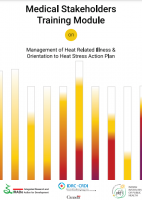
2021
The Training Module provides an insight for the Medical stakeholders and practitioners into how heat stress can trigger gender specific health issues and enable them to understand how to identify the individual health impacts of heat stress and be able to more efficiently relay these concerns more effectively.
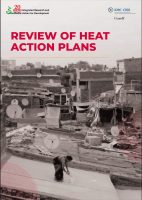
Review of Heat Action Plans
2021
This review report is critical for identifying gaps and to improve the existing HAPs. It will also act as a manual for preparation of future HAPs in the South Asia region.
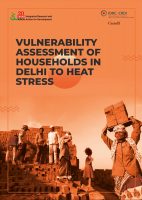
Vulnerability Assessment of Households in Delhi to Heat Stress
2021
The purpose of this report is to underline the importance of the Heat Stress Action Plan (HSAP) and to generate evidence-based solid policy recommendations to integrate them into the current and future climate actions at the local, state and national level.
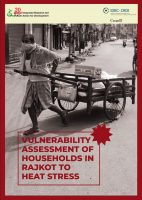
2021
The purpose of this report is to underline the importance of the Heat Stress Action Plan (HSAP) and to generate evidence-based solid policy recommendations to integrate them into the current and future climate actions at the local, state and national level.
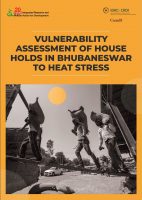
Vulnerability Assessment of Households in Bhubaneswar to Heat Stress
2021
The purpose of this report is to underline the importance of the Heat Stress Action Plan (HSAP) and to generate evidence-based solid policy recommendations to integrate them into the current and future climate actions at the local, state and national level.
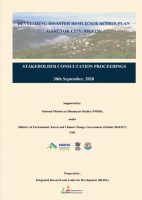
2020
IRADe in collaboration with Sikkim State Disaster Management Authority (SSDMA) organized a Stakeholders’ workshop on 30 September 2020
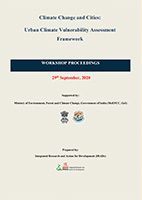
2020
IRADe organised a National Workshop on “Climate Change and Cities: Urban Climate Vulnerability Assessment Framework” on 29 September 2020
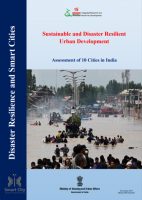
2019
A study of vulnerability for the 10 cities was carried out in the aspects of natural hazards, existing critical infrastructure, recovery and response system of city governance, and the socio-economic status of the population.
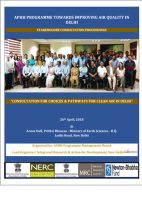
2018
The stakeholder consultation was organised on 26th April 2018 to address four interrelated themes that will support the research on the sources and emissions of urban air pollution in New Delhi, the underlying processes governing air pollution in Delhi, its impacts on health and mitigation options.
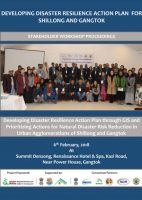
2018
A stakeholders’ workshop on “Developing disaster resilience action plan through GIS and prioritizing actions for natural disaster risk reduction in urban agglomerations of Shillong and Gangtok” was organized on 6th February 2018
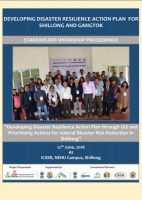
2018
A stakeholders’ workshop for the project “Developing Disaster Resilience Action Plan through GIS and Prioritizing Actions for natural Disaster Risk Reduction in Shillong” was organized at North-Eastern Hill University (NEHU), Shillong, Meghalaya on 12 June 2018.
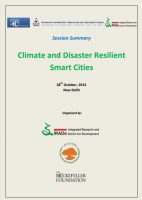
2015
The session was organized by IRADe & ACCCRN in partnership with Technology, Information, Forecasting and Assessment Council (TIFAC), DST, GoI under the 6th Conference of the International Society for Integrated Disaster Risk Management (IDRiM -TIFAC 2015) on 28th October 2015
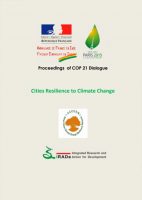
2015
The seminar on “Cities Resilience to Climate Change” was organized by the French Embassy in India in collaboration with Integrated Research and Action for Development (IRADe) and Asian Cities Climate Change Resilience Network (ACCCRN)
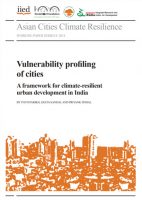
2014
This working paper presents a holistic approach for how a city can customise its rapid vulnerability assessment in order to understand what is required for building climate resilience.
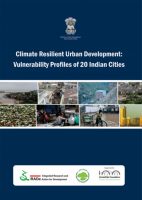
2013
The main objective of this study was to develop a rapid assessment of the vulnerability of cities by highlighting various risk exposures and vulnerability factors.
